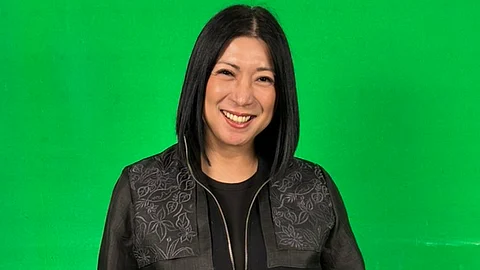
- NEWS
- the EDIT
- COMMENTARY
- BUSINESS
- LIFE
- SHOW
- ACTION
- GLOBAL GOALS
- SNAPS
- DYARYO TIRADA
- MORE

In every crowd, there is someone quietly asking, “Why am I like this?” For Carelle Mangaliag-Herrera, that question marked the beginning of a decades-long journey — one that transformed her from a young woman seeking answers into a global thought leader in leadership, communication, and personal transformation.
Herrera, co-founder and CEO of TrainStation Inc., is a certified expert in neurolinguistic programming (NLP), neuroscience, and positive psychology. She is also a living testament to the idea that brokenness can become a blueprint for healing.
“I started from a lot of difficulty,” she recalls. “My childhood was filled with unanswered questions — about depression, about choices, about why I felt the way I did. I had to seek help. I read books, attended seminars, saw coaches and psychiatrists, until it felt like someone handed me a manual for the brain.”
That manual would become her life’s work. Today, Herrera has spent nearly 30 years teaching individuals, organizations, and communities how to better understand themselves — rewiring the way they think, communicate, and ultimately, live.
One of Herrera’s most compelling lessons lies in reframing the way people label their experiences. A panic attack? She prefers to call it a panic signal. “Your body is not attacking you,” she explains. “It’s sending a message — like your stomach grumbling when you’re hungry. Anxiety is not your enemy. It’s a signal asking: What do you need right now?”
This shift in language — a central principle in NLP — helps people stop seeing themselves as “damaged goods” and start embracing their unique wiring. Herrera even calls her own ADHD a “superpower,” enabling her to be hyper-creative, energetic, and deeply focused when it matters.
“Stop labeling yourself with what’s wrong,” she says. “Start asking what’s possible with how you are.”
In a world that prizes technical expertise, Herrera insists that the most transformative skills are surprisingly human: kindness and humor. “A lot of leaders think they need to be serious to be respected. But kindness—paired with lightness—creates connection,” she says.
Her philosophy on leadership mirrors her approach to self-compassion: the more kindness one extends inward, the more authentically it can be extended outward. “When leaders learn to be kind to themselves, they stop burning out. They make clearer, more humane decisions.”
Herrera’s background in theater taught her the discipline of rehearsal and the power of storytelling, both of which she integrates into her trainings. Whether addressing 20 executives or 1,000 participants, she emphasizes presence. “It’s not a knowing problem — it’s a doing problem,” she says. “We already know so much. What’s missing is practicing it every day, in conversations, in the way we listen, in the way we show up.”
Her personal stories often serve as bridges to her audience: her father’s humble beginnings as a farmer and janitor, her own painful experience of six miscarriages, and her joyful journey of adoption. “Every wound created a bigger container for love,” she says. “And that love fuels the work I do.”
If there is a thread that runs through Herrera’s career, it is hope. “The enemy of humanity is helplessness,” she emphasizes. “Hope is what gives people resilience, courage, and success. It is the foundation of everything I teach.”
Her mission may sound grand — uplifting 1 percent of humanity, or roughly 80 million people — but she grounds it in the simple: one conversation, one leader, one community at a time.
“It’s on you,” Herrera tells her audiences. “Understanding how you think, how you label things, how you communicate. That’s where change begins. Not with anyone else, but with you.”
In a world filled with noise, Carelle Herrera teaches people to listen — first to themselves, then to others. In that process of understanding, she reminds us that every struggle is not a stopping point, but a signal: a call to heal, to grow, and to hope.
